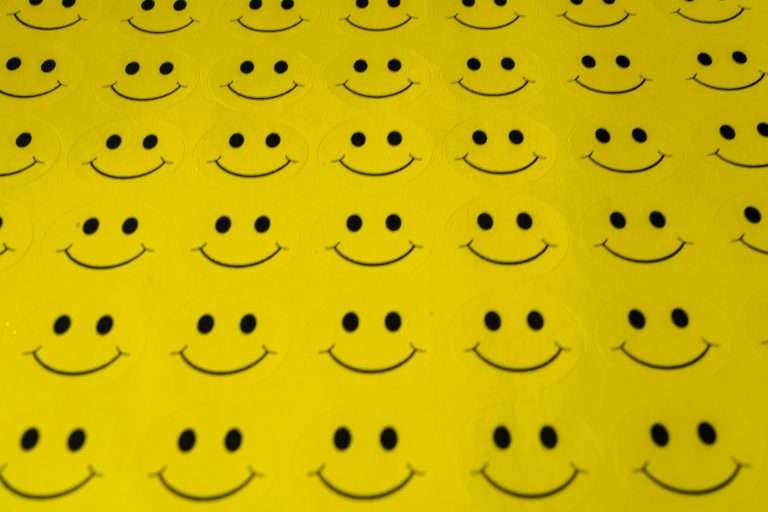As Sartre said, “Man is nothing else but what he makes of himself.”
We create ourselves. We have the capacity to tap into our potential and actualize it.
Like a sculptor who chisels away at marble, over the course of a lifetime, we get to form a unified image of ourselves. Through careful choices, we arrive at a final form of self-mastery. We’re the product of our hard work and right mindset.
But is this true?
Young generations seem to be sold this idea a lot: in countless self-help books teaching you the art of self-actualization or by public figures — from influencers to politicians — who encourage us to work hard, because anything is possible.
And they seem to be buying it. We’re constantly trying to realize our potential and increase our market value. Judging by the popularity of the #selfmade hashtag, it seems that we’re confident there’s a key for success, accessible to all who are determined to follow the “formula.”
Not only that, but the internet is brimming with accounts of “self made” millionaires and tutorials on how you can become one too. These are the good parts. The “Go get it! You got this!” encouraging cheers. But there’s a flip side to this. Not long ago, when asked what business advice she’d give to women, Kim Kardashian went with the classic “Get your fucking ass up and work”.
A while back, another female influencer (can’t remember who), said on a podcast that she doesn’t understand why some people are poor. “After all, we all get the same 24 hours in a day,” she stated.
Should we abandon “self-help talk” and view differently our development in the world? There’s some great points in this way of viewing our growth, but I also think this metaphor can trap us into dangerous mindsets. And make us say stupid and insensitive remarks, like the ones above.
In this article I want to explore the good, the bad and the ugly (mostly the ugly) of viewing yourself as the product of your own creation. I’ll also delve into the culture of meritocracy that surrounds us.
I’ll try to tease out how we got here, what the implications are and how to think better about what makes us us.
This is a nuanced discussion that can be approached from various angles: biology (genetic makeup), history, philosophy, psychology and many others.
First, as I’ll argue later, it’s paramount that we are aware of humanity’s history of thought. So let’s see where notions of being the creators of our lives originated.
Although you can trace it back to antiquity, it has taken shape as existentialism starting in the 19th century. Before we talk about that, we should become familiar with Aristotle. Although he didn’t specifically write about creating yourself, he was deeply interested in what it means to live a good life.
He introduced a pair of concepts that we still use today, perhaps unaware that they originated with him. The first concept is potential. He used the word dynamis to talk about it. This doesn’t only refer to human potential, but is used by Aristotle in his studies of the natural world to explain a range of phenomena. For our purposes however, we’ll only address the the human side. The other term is actual, when then potential has been realized.
Aristotle viewed human potential as the set of aptitudes a person has, which can be further developed through training. Aristotle thought that mere potential is not enough for the flourishing of a human being. Other factors are involved too, such as your own training, intentions and reasoning. Thus, the circumstances one finds themselves in are crucial to actualize their potential.
Fast-forward two millennia, to meet Jean-Paul Sartre, the figure most associated with existentialism. He argued that our existence precedes our essence. There’s is no a priori essence which determines the nature of a human being; rather, people are creating themselves through actions and the cultivation of character. We can’t do anything we want, but the actions which we choose to do will shape our being. He even stated that “we are our choices.”
A natural implication of Sartre’s assertion is that we are free to choose our own meaning. Because there is no predetermined purpose for a human life, each individual is responsible for embracing their personal meaning.
If we look to Kierkegaard, he emphasized the role of choices in Either/Or:
Choice itself is decisive for a personality’s content; in choice personality immerses itself in what is chosen, and when it does not choose it wastes consumptively away.
In general, the act of choosing is a literal and strict expression of the ethical. Wherever it is a matter of an either/or in a stricter sense, one can always be sure that the ethical is involved.
While choices can’t be dismissed, we must look beyond ourselves to understand the full picture.
External circumstances
You are a product of the world as much as you are a product of yourself. The culture you are raised into informs your values and aspirations. You may think your dreams are your own, but chances are that you’re observing what everyone else is doing and aspiring to do/have the same thing. If you didn’t, advertising companies would have a much more difficult job of selling you useless shit. Who hasn’t bought an article of clothing, an appliance or a concert ticket merely due to its cult following? (I sure did.)
Had you been born in 15th century China, you wouldn’t have thought to pursue the goals you do now. Sure, globalization was not a thing, much less the internet. So anything related to “building an online empire” wouldn’t even have made sense to you.
Since I’ve referred in the introduction to the person as a work of art, it seems only fitting to give an analogy from the world of painting. Suppose you were born in 19th century Europe. Several art movements were coming in and out of existence, but it’s very like that if you were a painter in that period, you would have been a realist or an impressionist. Or maybe a romantic. But your artworks would have reflected the spirit of the times.
So recognize and accept your influences. But see if you can take a step back and look at these influences objectively. To a degree, they’re inescapable.
If you don’t learn what shapes society today, that would be akin to being born in a country where you speak the language and you deeply internalize it, but you don’t know what the language is called, how it came into existence and what its properties are. Of course, now we don’t speak only one.
If you’re a born in the West, there are many languages we learn: capitalism, democracy, internet. These are all part of our cultural grammar. They inform our beliefs and actions.
It would be a sign of ignorance to be oblivious to the set of circumstances that made you you.
Let’s not discount the role played by luck, timing, privileges and unfair advantages in shaping our lives and careers. Throughout history, there has always been a sweet spot for learning a certain skill, betting on an emerging industry or creating a revolutionary product. Product designers refer to the perfect marriage between a product and how much demand there is for it as product-market fit.
Let’s take Apple for example. The developing of the iPhone wouldn’t have been possible without the technologies that it’s built upon: touch screen, powerful small batteries and CPUs. A whole host of conditions had to be right in order for the iPhone to be possible. It wasn’t just Steve Job’s genius.
Meritocracy
How we talk about ourselves is rooted in society’s fixation with merit.
We live in a broken meritocracy. Yet, we still assume everyone gets what they deserve. Michael Sandel, political philosopher at Harvard, explores this topic and its implications in his book The Tyranny of Merit. It’s an extensive analysis of how we think about success and what it means to “deserve what you get”.
The explosion in inequality over the past decades, due to promises of free markets and capitalism, has cemented the social classes. The rich stay rich, consolidating their wealth, while the poor are more likely to stay poor, no matter how hard they try overcome their condition.
So making the most out of the 24 hours we all get will not ensure success.
It becomes increasingly hard to herald the mindset that hard work and talent are enough for upward mobility.
Sandel observes that this meritocratic ideal is dividing the winners from the losers. If it’s true that your success is a product of your hard work, then what does this say about those who make it? It will only reinforce their belief that they deserve all the praise and recognition. On the other hand, the “losers” will become more resentful and will lost their dignity. After all, if only they had tried harder, they might have climbed on the social ladder.
The more we see ourselves as the makers of our fortune, the less empathy and compassion we’ll display towards those less fortunate.
Meritocratic hubris reflects the tendency of winners to inhale too deeply of their success, to forget the luck and good fortune that helped them on their way. It is the smug conviction of those who land on top that they deserve their fate, and that those on the bottom deserve theirs, too.
It’s clear why a meritocracy is desirable. At least in terms of efficiency and fairness, as Michael Sandel points out, it’s the preferable option. Knowing that we succeeded based on our own merits gives us a sense of agency and pride. This is why dreams of being “self made” are so intoxicating; they speak to the desire every human has: of being a product of their own efforts.
This meritocratic view originated in how we saw our relationship to God. It was believed that natural disasters or the spreading of disease were God’s way ot showing his wrath for mankind’s wrongdoing. On the other hand, prosperity was a sign of God’s approval. This view is not so distant, since there are people who think the recent pandemic was a divine sign, something mankind has brought upon itself.
In the history of theology, there were of course people who opposed this view. Perhaps the most prominent being Martin Luther, who viewed human salvation as an act of grace, that can’t be influenced by anything an individual does. Your place in heaven was God’s will and your deeds didn’t enter the equation. You can’t get more anti-meritocratic than that.
Calvinists (who held to the same belief that grace informed one’s salvation) desperately tried to find a way to know their fate beforehand. So they rationalized their way into thinking that by having a strict work ethic, doing the work God intended for you, is a sign that you’re saved. And this slowly evolved into being a source of salvation.
This belief provides the basis for capitalism as we know it today, although the Protestants didn’t enjoy extravagant lifestyles, because that was not the point of their work.
From there, it was only natural to conclude that through work, combined with providence, humans could take charge of their destiny. Being rewarded for your actions automatically implies moral desert.
Slowly, especially in the last decades, the market has become the only mechanism we rely on to determine what’s valuable. In today’s society, if the market gives your product a stamp of approval, then it must be good. End of story. We’ve reduced matters of morality and ethics to the economy. There’s a term for this kind of man: homo oeconomicus.
Today, the common good is understood mainly in economic terms. It is less about cultivating solidarity or deepening the bonds of citizenship than about satisfying consumer preferences as measured by the gross domestic product. This makes for an impoverished public discourse.
Personal responsibility
Another key ingredient in the discussion of success — one that seems to be on everyone’s lips — is personal responsibility. The modern man seems to be expected to deal with a messed up world by searching inside himself and taking on as much responsibility for his faith as possible. In a way, there are no alternatives, since support from outside is likely to come. I’m not here to discount the role responsibility plays in our lives. It should be expected and encouraged, up to a point.
But the problem arises when we follow the implications all the way through. The way it is viewed today, responsibility is at the core of being “self-made”. Naturally, the burden is solely on us. And any failure to be independent must be a personal fail. The rhetoric of responsibility reverberates into our increasing obsession with self-help and self-care. (Or anything self-related.) We’ve lost trust in communities and the value of a shared experience. We’ve even created new words to signify our independence. A person who operates his own business isn’t an entrepreneur, but a solopreneur.
Maybe I’m seeing things that aren’t there, but over the last few years I noticed an intensification of individuality and emphasis on the self as the sole agent of chance in society.
And let’s not make this even more complicated by bringing up free will.
Where does this leave us?
I think it can be helpful to have this mindset of self creation. But it doesn’t mean that it’s true. It has the capacity to empower us and instill a sense of agency and control in ourselves that may prove beneficial, but we shouldn’t let it distort reality. Or inflate our ego. Holding this view will also make you aware of your responsibility in the world and how each choice can influence you and reverberate onto others.
Speaking of others, we should learn to have more compassion towards those less fortunate, because their condition is not always of their own doing.
I think it’s crucial to stress that I think we need to put the project of “cultivating our selves” into the right framework. We shouldn’t strive for self-mastery solely to advance our individualistic interests, but for participating in the creation of a better future.
You can’t help others if you can’t help yourself first. And in order to do that, some basic requirements need to be met (physical ability, mental health, stable socioeconomic status, etc.) When you reach that desired state of self-mastery, make sure to look beyond yourself.
You can’t be a valuable agent of change in society if you haven’t taken the time to figure out how this world works. Why? Because you’ll be so engrossed in it that you won’t have the big picture necessary to have a detached perspective. Also, you’ll take everything for granted and risk becoming a self-entitled prick.
Go on. Learn about the world. Read what other great minds had to say. Build cool stuff. Cultivate your character. Help out. And be kind.



